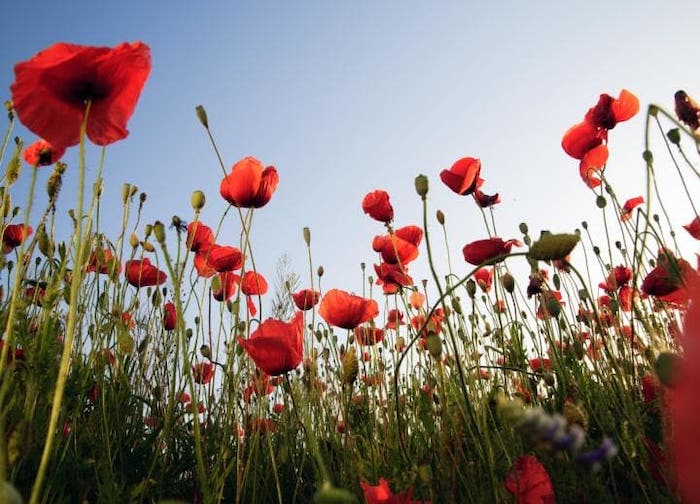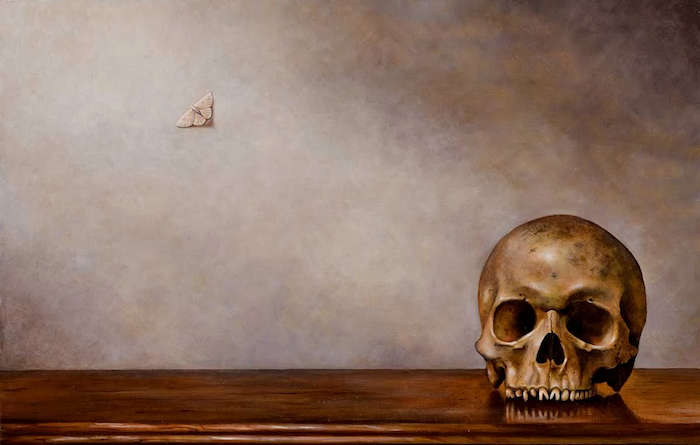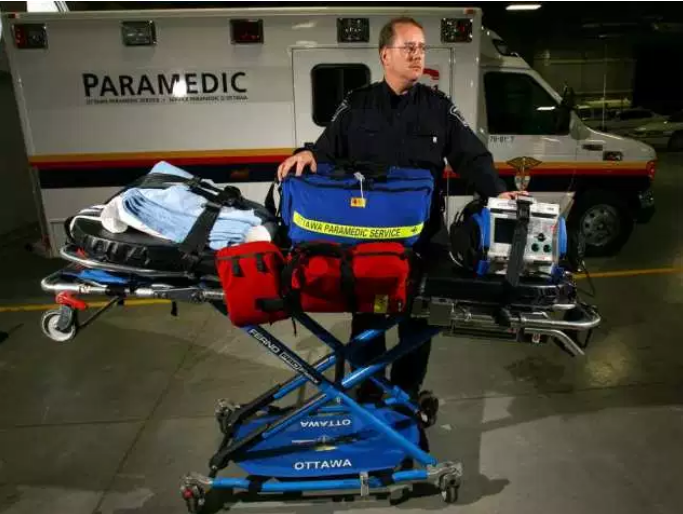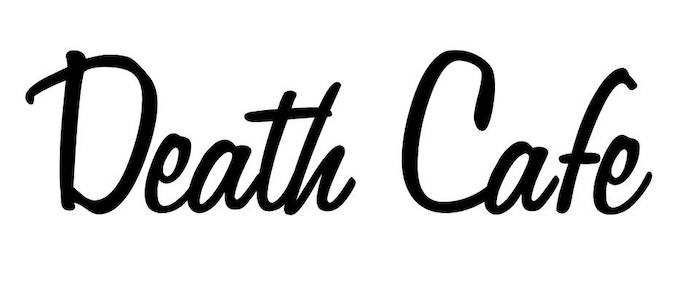Everyone is at least a bit afraid of dying. Yet that fear is the driving force behind so much of life. Anything we achieve is because we know death will come: forming relationships, writing books, having children…these are all a result of our fear of an inevitable end.
Perhaps, with infinite time on Earth we’d put far less work into living. A healthy awareness of our own mortality in our daily lives, then, can be a good motivator. But when is it too much? The answer, especially for people like me with obsessive compulsive disorder (OCD), is when it becomes an obsession.
For as long as I can remember, I’ve suffered with OCD. Like many others, my intrusive thoughts revolve around death-adjacent topics. OCD presents diversely but, simply put, sufferers have intrusive thoughts that they cannot control. In an attempt to control those thoughts, they’ll perform compulsions.
My own death didn’t necessarily frighten me. For a child plagued by constant, violent images and compulsive behaviours, it seemed a bit too much like freedom to be scary. It’s no coincidence that, held prisoner by intrusive thoughts and compulsions, people with OCD are 10 times as likely to die by suicide.
Integrative psychotherapist and OCD specialist Craig Shirley of the OCD Treatment Centre tells me that my experience is common. He says that many people with OCD don’t fear death so much as they fear the uncertainty and the idea of “missing out on life”.
“People with OCD often want to be able to have complete certainty around particular things, which of course in this case they can never have,” Craig adds.
Twenty-six-year-old Zoe tells me that she developed OCD shortly after her grandpa died. “My family has always been my safety net, and my grandpa’s death woke me up to the fact that that could all slip away,” she explains. “I remember watching Mulan, the scene where the ghosts of her ancestors are fighting in the temple. I had a panic attack knowing that if my family died, they would not come back as quirky ghosts. They’d just be gone.”
Zoe adds that she became desperate for things to go back to how they were before, which led her to perform rituals to “heal” her family. “Because change, illness and death are inevitable, I became hysterical as the initial rituals became ‘less effective’. I revised them all the time, my routines becoming longer and more obvious to everyone around me. This only worsened after I saw my nana die a couple of years later.” This perceived responsibility to “help” everyone at the expense of your own mental health is common with OCD sufferers – we often believe that we’ve somehow been tasked with saving everyone through our rituals.
As a child, I would obsess over my own demise, keeping extensive diaries so that I could remember everything I’d ever done. I tried to control the inevitability of death, making promises to an imaginary OCD God to be good, to do my rituals as long as nothing harmed me or my loved ones.
While Zoe has had therapy that’s brought her rituals under control, she still obsesses over death and health. “In the last five years I’ve had two friends die and in the aftermath I went crawling back to some of the rituals I performed as a kid, like a comfort blanket. I felt responsible and tried to redeem myself,” she says.
Similarly Suzi, 32, who is Catholic, told me that while death was a constant spectre for her, the idea of heaven placated her anxieties. After getting treatment for OCD, she found that in overcoming her obsessive thoughts and OCD-related rituals, she also lost the Catholic rituals she had always fallen back on.
With that loss of faith, Suzi says she also lost the “safety net” of heaven. “My OCD has always been centred around fears for my own wellbeing, and not trusting others with it. I was terrified of suffering, pain and death. I no longer knew what happened when people died, and I struggled with the concept of people not having a soul, of my conscious mind ceasing to exist when I died.” She adds that after being diagnosed with chronic illnesses, her fear has transformed. “Where once my fear of death was about what happens after people die, it’s now about not achieving the things I want to.
A sudden death scares me less than the knowledge that my life will end and I have no control over when. As a child, I would obsess over my own demise, keeping extensive diaries so that I could remember everything I’d ever done. I tried to control the inevitability of death, making promises to an imaginary OCD God to be good, to do my rituals as long as nothing harmed me or my loved ones.
This fear hasn’t gone away. However, experiencing actual loss in my life has turned death from a haunting spectre into a very real, looming possibility. It has also made me aware of how badly I handle grief, which makes the possibility of dying scarier.
The more I enjoy something – a person’s company, a moment in time – the more aware I am that everything is temporary. We cannot control that inevitability and as an adult, I know that, so the way my obsessive thoughts manifest is different from the rituals I used to have. I try and fit as much as I can into my life, to the point of obsession. I record everything. If I have dinner with my grandad, I’ll note down the things he says afterward, unable to enjoy the present for fear of the future. Transience is scarier to me than death; the idea that anything we love can be ripped from this Earth at any moment is at once what drives and paralyses me. The rise of an insistent obsession seems gradual until the point where it takes over everything.
Despite the fact that around 1.2% of people in the UK live with OCD, it’s still one of the most misunderstood and misrepresented disorders.
The experience of having intrusive thoughts is difficult to explain to someone without OCD. Imagine you’re having a relaxing time, say a nice bath. Out of nowhere, you’re hit with a graphic image of a dead loved one. It’s upsetting, no matter how often you’ve experienced it. So to get rid of the thought, you might perform a compulsion, like counting everything you see. While my compulsions have gotten better with time, my obsessions have not. Whether it’s images or troubling thoughts, I feel like I have no control over what I think about.
Despite the fact that around 1.2% of people in the UK live with OCD, it’s still one of the most misunderstood and misrepresented disorders, which makes it difficult for sufferers to be honest. Confessing to a friend that you obsess over violent images against your will is daunting. It leaves sufferers feeling lonelier, which serves to exacerbate the disorder.
I spent the first few years of my life in the dark about my condition, thinking that I was “wrong”. In the media, OCD has typically been represented as an obsession with cleanliness. While that is sometimes the case, the ‘compulsions’ – the only visible part of OCD – are often the least harrowing. What goes on in a sufferer’s brain is for many the worst part of the disorder, and harder to represent.
OCD is a way of trying to control an uncontrollable world. Loss is the most unruly, devastating thing we can go through. Perhaps that’s why entire religions have organised around trying to make sense of it.
Of course, not everyone who’s afraid of death suffers from OCD. Craig tells me that the noticeable difference is about “how much time the OCD is taking up of someone’s life”.
He says that while many people without OCD want reassurance or ruminate over things, you know if you need to seek help when the symptoms are “getting in the way of everyday activities” or if you’re “becoming increasingly obsessed around a particular theme or worry”.
When you’re constantly assaulted by painful thoughts against your will, it might seem counterintuitive to seek them out. But with OCD, the most effective form of therapy is Exposure Response Prevention, wherein a sufferer confronts images and situations that they find uncomfortable and ignores the urge to perform compulsions.
Zoe tells me that a combination of therapy, talking to fellow sufferers and discussing death openly has made her rethink dying. This works for me, too.
The one thing that has helped me to feel more in control of my thoughts has always been learning. That can take many forms: educating myself on my disorder but also educating myself on what I fear. When I was so scared of arson that I would go home to check if my house was on fire, I taught and reminded myself of the (slim) possibility of that ever being the case.
And so, to deal with my fear of death I started to learn more about death positivity. First, I did this through Caitlin Doughty, the mortician and YouTuber. After reading Doughty’s books, I learned that she got into the death positivity movement when she developed OCD after seeing a child die aged 8. Her fear of death, and her rituals surrounding it, forced her to confront her fear head-on. Now she has three books under her belt and an impressive career tackling “death denial”.
The one thing that has helped me to feel more in control of my thoughts has always been learning.
From there, I read more and more about death, death rituals and the way other cultures embrace and accept death. I took practical steps, like thinking about what I want when I die. Sure, it’s morbid. But it makes me feel less as if I’m leaving this Earth against my will.
Now, I genuinely believe that my OCD was worsened by our culture of silence and denial around death. We often describe death in euphemistic terms – people “go to sleep”, they’re “in a better place”, etc.
Open conversation about death has been promoted by death acceptance advocates like Doughty’s collective Order of the Good Death, but the movement is still “alternative”. Being euphemistic only makes us deny death more, but it’s been proven that open, non-euphemistic conversation informs people and goes some way toward preparing them for the unimaginable. It makes us more able to handle grief.
The rise of death doulas, who coach people through dying, points to a more accepting attitude towards death. Death doula Shelby Krillin tells me that she frequently encounters people with OCD who have anxieties around death, and that it often stunts our ability to grieve. “It hinders deep conversations and connections with the ones we love who are dying, and the side effect is superficial conversations. When that happens, feelings, wishes and thoughts go unexpressed,” she tells me, adding that sitting with death is “true vulnerability.
She points to the Buddhist attitude of “embracing the groundlessness of life” as a pointer for starting to discuss death. “What we don’t know, we fear. Talking about death gives it three dimensions. You get to look at it from all angles. When people start truly grasping their own mortality, it makes our lives more vivid and wondrous
Like many anxious people, I fill in the blanks with the direst consequences imaginable, a process known as catastrophising. If my boyfriend is at the shop too long or my grandad doesn’t answer the phone, my brain tells me they’re dead. If my dog is sick, she’s dying. If I smell smoke, my house is on fire. Filling in the blanks with the truth and soothing myself with facts is reassuring.
Craig tells me that honesty is the best approach. “Accepting death isn’t necessarily about just finding a different way of looking at it, but also about accepting more deeply the things that we as human beings can and cannot control, and learning to accept that,” he reflects.
Accepting the things we cannot control is a necessary part of overcoming most manifestations of OCD. As death acceptance becomes less alternative, it’s my hope that we can all learn to talk openly about the inevitable end we all face and my belief that a culture of honesty might have helped me as an obsessive compulsive child.
Complete Article ↪HERE↩!







